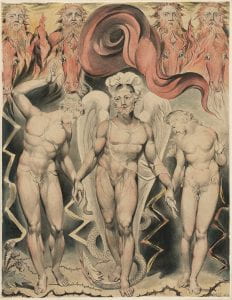
Helen A. Regenstein Professor in English, Comparative Literature, and the College University of Chicago

Helen A. Regenstein Professor in English, Comparative Literature, and the College University of Chicago

Please join the Renaissance Workshop
Monday, October 3rd, when
Joshua R. Held
Chair and Associate Professor of English
Trinity International University
presents the
Introduction from Reading Difference in Shakespeare’s Folio: Race, Gender, and Tragic Sympathy
Monday, October 3rd
5:00-6:30pm
Rosenwald 405
The paper, to be read in advance, has been distributed to the Renaissance Workshop mailing list and is available on this website under the password “folio.” Light refreshments will be served.
If you would like to join our mailing list, please click here. We are committed to making our workshop accessible to all persons. Questions, requests, and/or concerns should be directed to Andrés Irigoyen (airigoyen@uchicago.edu) and Sarah-Gray Lesley (sglesley@uchicago.edu).
Abstract from the author:
Some authors have recently attempted to defend Shakespeare from charges of racism, patriarchalism, and other cultural and ideological positions that were common in early modernity but that are particularly unsavory from the perspective of the twenty-first century. This kind of apologetic is especially critical in maintaining Shakespeare’s relevance amid widespread social movements such as #MeToo and Black Lives Matter, and scholarly movements such as Race B4 Race and Critical Race Theory. But however salutary such apologetical arguments may be, they might leave many wondering whether Shakespeare—perhaps the central canonical dead white male literary figure—can be so easily extricated from responsibility for problematic figurations of race, gender, and other human difference. I believe the impulse behind this Shakespearean apologetic needs to be further interrogated, and its logic grounded more firmly on the historical William Shakespeare, which I locate in the earliest printed texts of his plays.
The Introduction for my current book project, “Reading Difference in Shakespeare’s Folio,” initiates my thesis that the six Shakespearean plays printed first as quartos and then included among the tragedies of the 1623 First Folio—Titus Andronicus, Romeo and Juliet, Troilus and Cressida, Hamlet, King Lear, and Othello—are changed in ways that modify the major emotions of pity and sympathy, in correspondence with different depictions of gender and race. The book goes on to argue more specifically that the Folio presents texts that are more proto-feminist and progressive in a portrayal of race. The Introduction locates Shakespearean tragedy within the book’s main issues: textual criticism, critical race studies, gender studies, and sympathy studies.

Please join the Renaissance Workshop
Monday, May 16th, when
Arthur Little, Jr.
Associate Professor, English
UCLA
presents the paper:
“Embattled Whiteness and the Humanist Academy in Jonson’s Masque of Blackness”
Monday, May 16th
5:00-6:30pm
Rosenwald 405
The paper, to be read in advance, has been distributed to the Renaissance Workshop mailing list and is available on our website here under the password “white.” Light refreshments will be served.
If you would like to join our mailing list, please click here. We are committed to making our workshop accessible to all persons. Questions, requests, and/or concerns should be directed to Ryan Campagna (rcampagna@uchicago.edu) or Sarah-Gray Lesley (sglesley@uchicago.edu).
